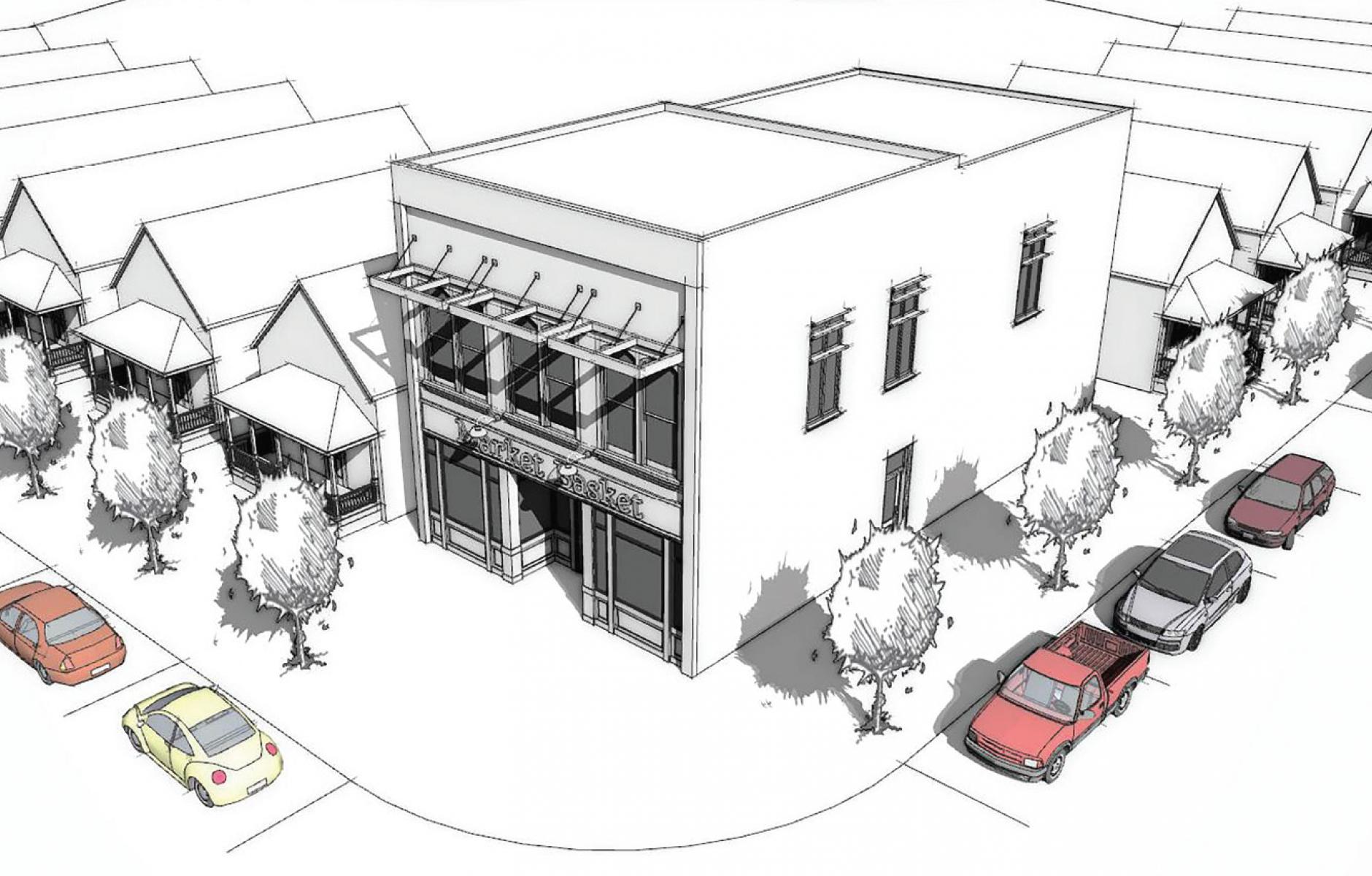
Corner stores can anchor a neighborhood
The smallest and most useful retail type of center, the corner store holds a special place in neighborhoods. Most corner stores range from between 1,500 to 3,000 square feet in the first level. The store can be sited as a stand-alone structure or built into a mixed-use building, in both cases preferably on a corner facing two streets. If possible, attics and basements should be provided for additional storage requirements. These small stores offer the beverages, food, and sundries most nearby residents, local workers, and travelers need on a regular basis. Beer, bread, cigarettes, prepared sandwiches, and snacks represent the bulk of their sales. These stores offer convenience over selection and value. Excluding dense urban locations, corner stores require convenient, nearby parking to allow for quick in-and-out shopping. If properly managed, off-street and on-street parking—alone or in combination—can meet the parking needs of the typical corner store.
The best locations for corner stores are on major local roads at the busiest entryway into the neighborhood. In densely populated traditional neighborhood developments (TNDs), a corner store can be economically sustainable within the neighborhood when sited on its primary street. When located adjacent to community buildings, parks, and schools, the store can benefit from the traffic generated by these uses.
Approximately 800 to 1,000 households are necessary to support the average corner store, which equals the number of households in a 160-acre TND. The number of required households can be significantly reduced if the store is located on a major road carrying 10,000 or more cars per day or if the store specializes in niche products, such as wines, package liquors, or baked goods. Sufficient vehicular traffic allows corner stores that double as gasoline stations to be supportable without nearby residences. Moreover, while a neighborhood is being built, construction traffic can support corner stores before the critical number of occupied houses is met. However, workers in the construction trades tend to be price sensitive, often preferring inexpensive snacks, sandwiches, and beverages that may not necessarily appeal to future neighborhood residents.




